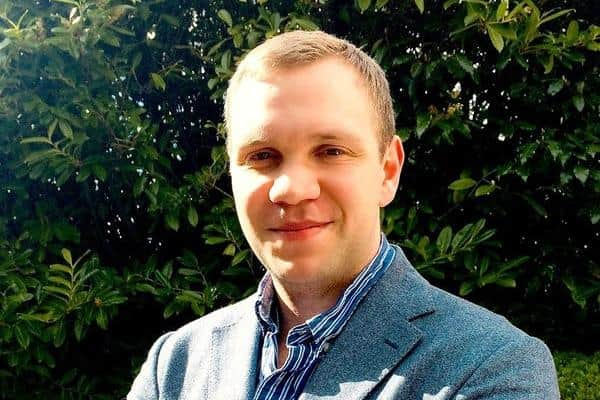British academic who was detained in UAE contacts Edinburgh University over event featuring government 'mouthpiece'
A British academic who was accused of spying in the United Arab Emirates (UAE) has questioned Edinburgh University’s decision to offer a platform to a man he claims is a “mouthpiece” for those who detained him.
Matthew Hedges, who was held in Abu Dhabi for six months in 2018 after being accused of working for MI6, has contacted the university over a talk being given by Professor Abdulkhaleq Abdulla on Tuesday.
Advertisement
Hide AdAdvertisement
Hide AdThe event is described as a discussion on "Transformations in Times of Geopolitical Change".


However, Mr Hedges accuses Prof Abdulla of making a series of statements on Twitter during his detention.
They included posts saying there was “solid” evidence against the researcher, that he was a “disgrace to academia”, and “does not deserve my sympathy”.
After his arrest at Dubai Airport, Mr Hedges says he was tortured, forced drugs, kept in solitary confinement for months, and interrogated for up to 15 hours at a time, with no real access to legal help.
An Abu Dhabi court found Mr Hedges, who was a PhD student at Durham University at the time, guilty of "spying for or on behalf of" the UK Government, and he was jailed for life. Later, the UAE issued a pardon and Mr Hedges was freed.
Alex Younger, the former chief of MI6, later said he had been “perplexed” by the case and that he "genuinely can't understand how our Emirati partners came to the conclusions they came to".
Speaking to The Scotsman, Mr Hedges said he did not want the Edinburgh University event cancelled, because he believed in free speech.
But he questioned the move, saying: "On what basis can they legitimise this? Are they going to identify his support for despicable practices? How is this suitable? What does this say about Edinburgh University?”
Advertisement
Hide AdAdvertisement
Hide AdMr Hedges queried how Prof Abdulla came to know intimate details about his case. "By giving a platform to someone who has said and done these things, it undermines Edinburgh University,” he said.
Mr Hedges said he wanted Prof Abdulla to be "directly questioned” at the event on the state of academic freedom in the UAE, as well as on his own apparent disappearance in the UAE, and on what basis he claimed to know details of Mr Hedges’ case.
Prof Abdulla told The Scotsman his talk in Edinburgh had nothing to do with Mr Hedges and the British academic was "merely seeking publicity" by raising the issue.
"I think it is the country's view – he is 100 per cent certified a spy," he said. "He had a fair and transparent trail, with British officials observing the details of his trail.
"He was convicted to life by a UAE court. He should be grateful that the UAE decided to free him as was requested by the UK Government because it very much values its relationship with Britain more than anything else. For him to object to my talk on Tuesday is an act of desperation of someone who has personal grudges against the UAE."
Prof Abdulla said he would be happy to address any questions raised at the event on Tuesday.
A webpage for the talk describes Prof Abdulla as a a prominent retired professor of political science who has held significant roles in various organisations, including Emirati Thinkers, the Arab Council for Social Science, and the Gulf Forum's Executive Council.
It also says he was a Fulbright Scholar, taught as a visiting professor at Georgetown University, and served as a senior fellow at the London School of Economics.
Advertisement
Hide AdAdvertisement
Hide AdA University of Edinburgh spokesperson said: “We are fully committed to upholding freedom of expression and academic freedom while facilitating a safe environment where members of our community can discuss and debate challenging topics lawfully, all within the bounds of our dignity and respect policy.”
Comments
Want to join the conversation? Please or to comment on this article.
